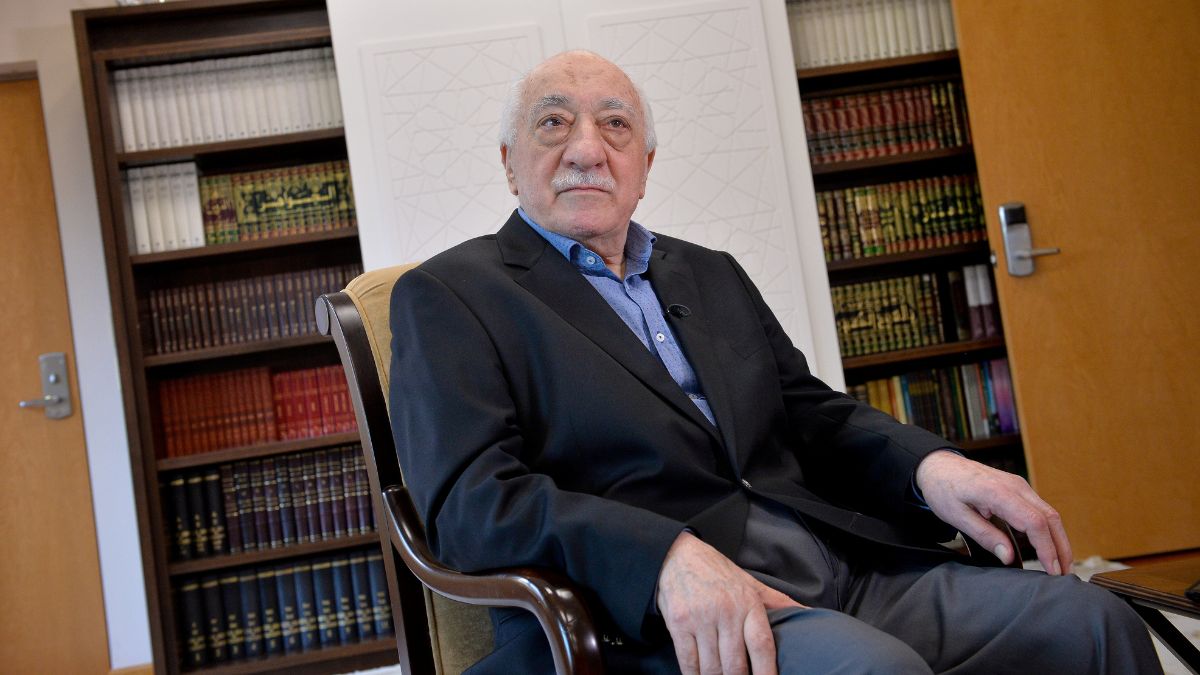Fethullah Gulen, a former ally turned arch-nemesis of Turkish President Tayyip Erdogan, died after nearly 25 years in exile. The 83-year-old Muslim cleric, who had lived in the US since the late 1990s, was accused by Erdogan of masterminding the failed 2016 coup attempt in Turkey.
He died in a US hospital on Sunday evening, according to Herkul, a website that publishes his sermons.
Turkey’s Foreign Minister Hakan Fidan said that his death was confirmed by Turkish intelligence sources. “The leader of this dark organisation has died,” he said.
Once a close ally of Erdogan, Gulen’s relationship with the Turkish leader fell out spectacularly after Erdogan blamed him for the 2016 coup attempt, which saw rogue military forces use warplanes, tanks, and helicopters to overthrow the government. The incident led to the deaths of around 250 people. Gulen, however, consistently denied any involvement in the incident.
Gulen’s movement, known as “Hizmet,” meaning “service” in Turkish, is described by its followers as promoting a moderate form of Islam that encourages Western-style education, free markets, and interfaith dialogue. In the early 2000s, Erdogan benefitted from Gulen’s network, using its influence to strengthen his position after becoming prime minister in 2003, particularly against the entrenched secular establishment in Turkey.
However, since the failed 2016 coup, his movement has been systematically dismantled in Turkey, and its international reach has diminished. Known to his followers as “Hodjaefendi” or “respected teacher,” Gulen was born in 1941 in the eastern Turkish province of Erzurum.
The son of an imam, he began studying the Quran from an early age.
From ally to rivals
Tensions began emerging in 2010 only to explode into full-on enmity three years later when a corruption scandal shattered Erdogan’s inner circle.
Erdogan blamed Gulen for masterminding the graft probe through his network of supporters in the judiciary and the police, turning him into “public enemy number one”.
Since then, Erdogan has accused the influential cleric - whose movement is present on every continent with its sprawling network of public schools - of leading a parallel state designed to overthrow him.
The president’s hatred intensified following the botched coup of July 2016, which he believes was engineered by his former ally.
In the immediate aftermath, the authorities began a crackdown on the preacher’s supporters, or “Gulenists”.
Nearly 700,000 people were prosecuted and some 3,000 were sentenced to life jail for playing a role in the coup, authorities say.
During the unprecedented purge, more than 125,000 public sector workers were sacked or suspended, including around 24,000 military personnel and thousands of judges.
The authorities shut down private schools, media outlets and publishing houses.
Turkish intelligence services also staged multiple overseas raids in countries across central Asia, Africa and the Balkans to round up Gulen’s suspected supporters.
The journey to a spiritual leader
Gulen was born in the eastern Turkish province of Erzurum. Public records say it was 1941 but Gulen said he was born in 1938. Despite being “just another imam in the 1970s” Gulen quickly became “the spiritual leader of a vast community with millions of supporters”, wrote researcher Bayram Balci.
Trained as an imam, or prayer leader, Gulem gained attention in Turkey around 50 years ago. He promoted tolerance and dialogue between faiths, and he believed religion and science could go hand in hand. His vision of blending Islam with Western values and Turkish nationalism resonated with many Turks, earning him millions of followers.
His influence spread far beyond Turkey, reaching the Turkic republics of Central Asia, the Balkans, Africa, and the West through an extensive network of schools.
Supporters were “present in all sectors of the economy, in education, in the media, and also in the administration”, Balci, a researcher at the Paris Institute of Political Studies (Sciences-Po), said in a 2021 study.
“With a taste for secrecy and influence, and even manipulation and intimidation… Gulen’s movement is very similar to various Catholic movements like the Jesuits, Opus Dei and others, from which it has clearly drawn inspiration,” he said.
Turkish officials refer to Gulen’s movement as the “FETO terrorist organisation”.
It has sometimes been described as a “sect”, with members known to help each other in business and expected to contribute their time or money, whether students, housewives or wealthy businessmen.
Gulen moved to the US state of Pennsylvania in 1999, ostensibly for health reasons.
Despite multiple attempts by Turkey to extradite him, Gulen led a reclusive life in exile on the edge of the Poconos, a scenic mountainous, wooded region of Pennsylvania.
With inputs from AFP
)